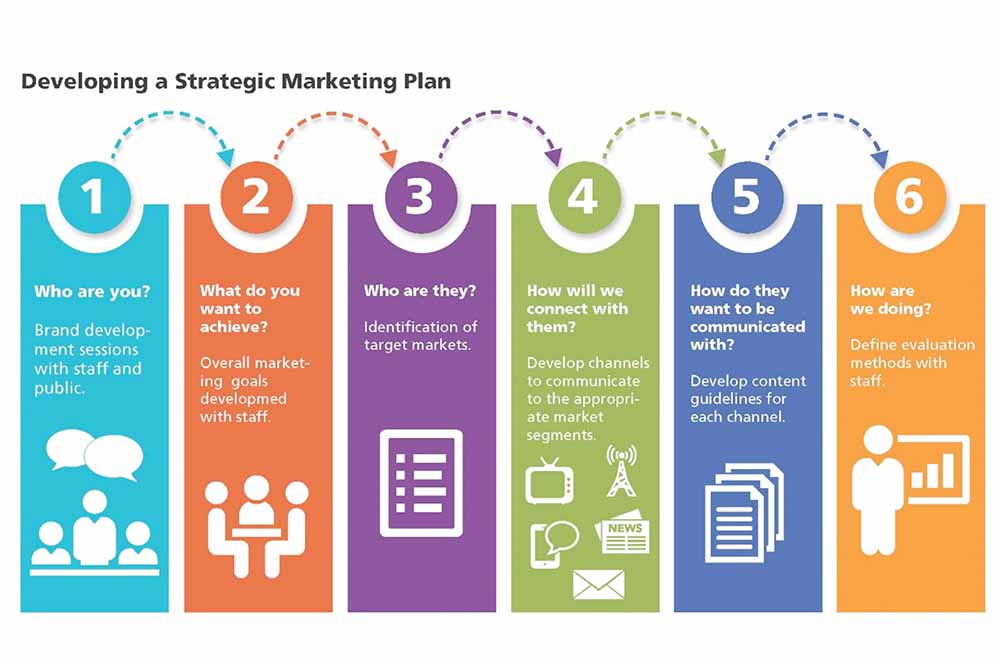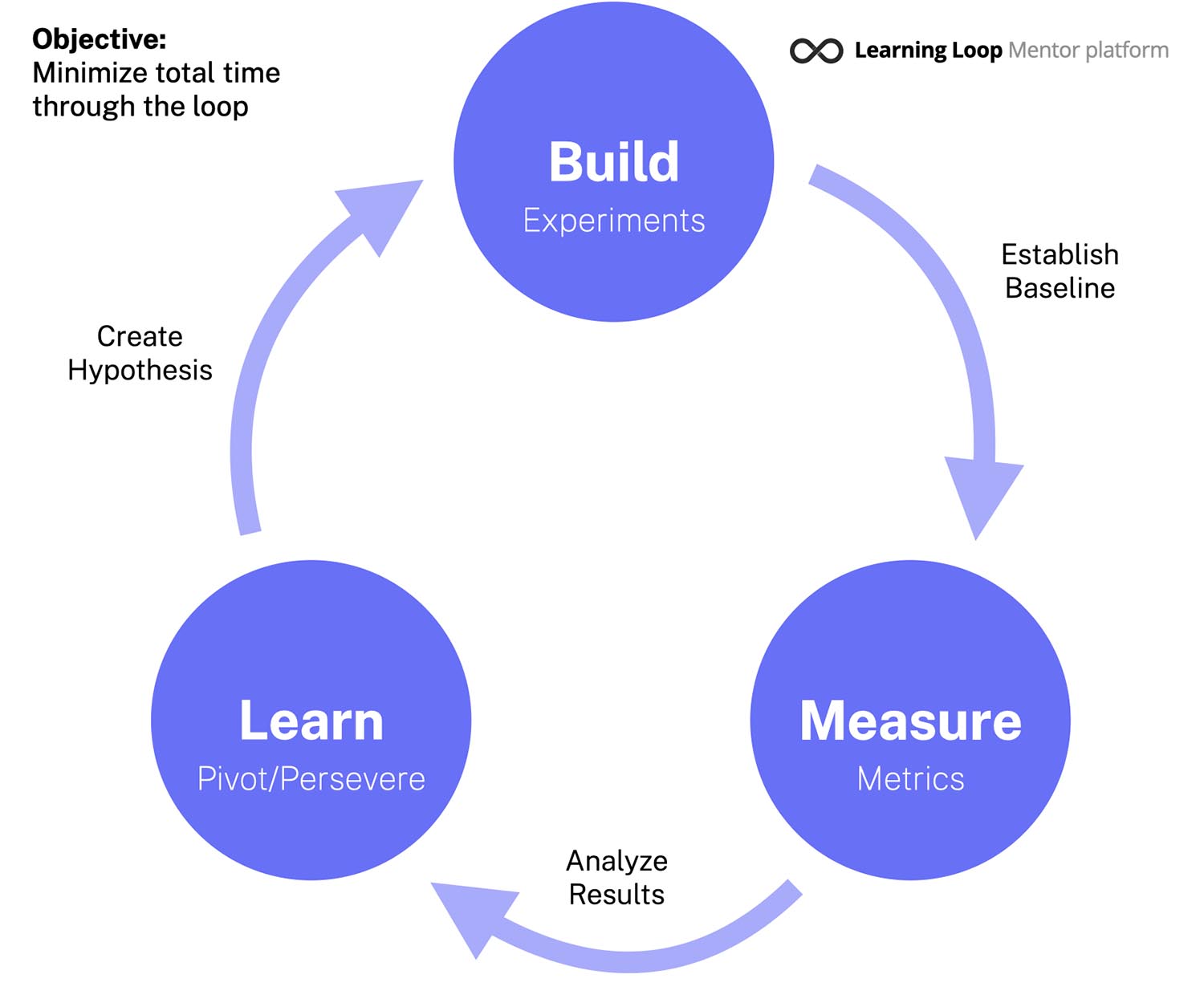Laying the Foundation for Startup Success
Developing a solid startup strategy is crucial for any new business venture. A well-defined plan provides a clear roadmap for success, enabling entrepreneurs to navigate the challenges of launching and growing a company. By investing time and effort into startup strategy development, founders can create a strong foundation for their business, setting themselves up for long-term success.
A comprehensive startup strategy helps entrepreneurs maintain focus, make informed decisions, and stay competitive in a rapidly changing market. It enables them to identify and capitalize on opportunities, mitigate risks, and adapt to unexpected challenges. Moreover, a well-crafted strategy facilitates effective communication among team members, investors, and stakeholders, ensuring everyone is aligned and working towards common goals.
Startup strategy development involves a thorough analysis of the market, industry, and competition. It requires entrepreneurs to define their unique value proposition, identify target audiences, and develop a compelling brand message. By doing so, they can differentiate their business from competitors, establish a strong market presence, and attract customers.
A solid startup strategy also enables entrepreneurs to establish realistic goals and objectives, including financial projections, customer acquisition targets, and key performance indicators (KPIs). This helps them measure progress, evaluate success, and make data-driven decisions to drive growth and improvement.
Furthermore, a well-defined startup strategy facilitates the development of a strong team and partnerships. By outlining roles, responsibilities, and expectations, entrepreneurs can attract and retain top talent, foster a positive company culture, and build strategic relationships with suppliers, investors, and other stakeholders.
Ultimately, a solid startup strategy is essential for driving long-term success and growth. By investing time and effort into startup strategy development, entrepreneurs can create a strong foundation for their business, navigate the challenges of launching and growing a company, and achieve their goals.
How to Conduct a Thorough Market Analysis
Conducting a thorough market analysis is a crucial step in startup strategy development. It involves gathering and analyzing data about the target market, competitors, and customers to inform business decisions and drive growth. A well-conducted market analysis helps entrepreneurs understand the needs and preferences of their target audience, identify gaps in the market, and develop a competitive strategy.
A thorough market analysis includes identifying target audiences, assessing competitors, and understanding market trends and needs. This involves gathering data through surveys, focus groups, and online research, as well as analyzing industry reports and market research studies. By doing so, entrepreneurs can gain a deeper understanding of their target market and develop a tailored marketing strategy that resonates with their audience.
Identifying target audiences involves analyzing demographic data, such as age, location, and income level, as well as psychographic data, such as interests, values, and lifestyle. This helps entrepreneurs develop buyer personas, which are detailed profiles of their ideal customers. By understanding their target audience, entrepreneurs can develop marketing campaigns that speak directly to their needs and preferences.
Assessing competitors involves analyzing their strengths, weaknesses, and market positioning. This helps entrepreneurs identify gaps in the market and develop a competitive strategy that differentiates their business from others. By understanding their competitors, entrepreneurs can develop a unique value proposition that sets their business apart and attracts customers.
Understanding market trends and needs involves analyzing industry reports, market research studies, and online data. This helps entrepreneurs identify emerging trends and opportunities, as well as potential challenges and threats. By staying ahead of the curve, entrepreneurs can develop a startup strategy that is agile and adaptable to changing market conditions.
A thorough market analysis is essential for developing a solid startup strategy. By gathering and analyzing data about the target market, competitors, and customers, entrepreneurs can make informed decisions and drive growth. By incorporating market analysis into their startup strategy development, entrepreneurs can create a business plan that is tailored to their target audience and sets them up for long-term success.
Defining Your Unique Value Proposition
A unique value proposition (UVP) is a critical component of startup strategy development. It is a clear and concise statement that defines the unique benefits and value that a business offers to its customers. A well-crafted UVP helps to differentiate a business from its competitors, establish a strong market presence, and attract customers.
The process of developing a UVP involves identifying key differentiators, crafting a compelling message, and creating a competitive advantage. This requires a deep understanding of the target market, industry trends, and customer needs. By analyzing this information, businesses can identify areas where they can differentiate themselves from their competitors and create a unique value proposition that resonates with their target audience.
Identifying key differentiators involves analyzing the business’s strengths, weaknesses, and market positioning. This helps to identify areas where the business can differentiate itself from its competitors and create a unique value proposition. Key differentiators can include innovative products or services, exceptional customer service, or a unique business model.
Crafting a compelling message involves developing a clear and concise statement that communicates the unique value proposition to the target audience. This message should be tailored to the target audience’s needs and preferences, and should be communicated consistently across all marketing channels.
Creating a competitive advantage involves developing a unique value proposition that sets the business apart from its competitors. This can be achieved by offering innovative products or services, providing exceptional customer service, or creating a unique business model. By creating a competitive advantage, businesses can establish a strong market presence and attract customers.
A well-crafted UVP is essential for startup strategy development. By defining a unique value proposition, businesses can differentiate themselves from their competitors, establish a strong market presence, and attract customers. By incorporating a UVP into their startup strategy, businesses can create a solid foundation for long-term success.
In addition to defining a UVP, businesses should also consider how to communicate their unique value proposition to their target audience. This can be achieved through a variety of marketing channels, including social media, content marketing, and paid advertising. By consistently communicating their UVP across all marketing channels, businesses can establish a strong brand identity and attract customers.
Setting Realistic Goals and Objectives
Setting realistic goals and objectives is a crucial step in startup strategy development. It involves defining specific, measurable, achievable, relevant, and time-bound (SMART) goals that align with the business’s overall mission and vision. By setting SMART goals, businesses can create a roadmap for success, prioritize resources, and measure progress.
Financial projections are a key component of setting realistic goals and objectives. This involves estimating revenue, expenses, and profits over a specific period of time. By creating accurate financial projections, businesses can identify potential financial risks and opportunities, and make informed decisions about resource allocation.
Customer acquisition targets are another important aspect of setting realistic goals and objectives. This involves defining the number of customers the business wants to acquire within a specific timeframe, and identifying the strategies and tactics needed to achieve this goal. By setting customer acquisition targets, businesses can focus their marketing efforts, prioritize resources, and measure the effectiveness of their marketing campaigns.
Key performance indicators (KPIs) are also essential for setting realistic goals and objectives. KPIs are measurable values that demonstrate how effectively a business is achieving its objectives. By tracking KPIs, businesses can identify areas for improvement, make data-driven decisions, and adjust their strategy accordingly.
Setting realistic goals and objectives is essential for startup strategy development. By defining SMART goals, financial projections, customer acquisition targets, and KPIs, businesses can create a roadmap for success, prioritize resources, and measure progress. By incorporating these elements into their startup strategy, businesses can increase their chances of success and drive long-term growth.
It’s also important to note that setting realistic goals and objectives is an ongoing process. As the business grows and evolves, goals and objectives may need to be adjusted. By regularly reviewing and updating goals and objectives, businesses can stay focused, adapt to changing market conditions, and drive continuous improvement.
In addition to setting realistic goals and objectives, businesses should also prioritize flexibility and adaptability. This involves being open to new opportunities, willing to pivot when necessary, and able to adjust to changing market conditions. By prioritizing flexibility and adaptability, businesses can stay ahead of the competition, drive innovation, and achieve long-term success.
Building a Strong Team and Partnerships
A well-structured team and strategic partnerships are crucial components of a successful startup strategy development. Assembling a skilled and dedicated team can make all the difference in driving growth, innovation, and competitiveness. In this context, it’s essential to focus on hiring strategies, talent development, and partnership opportunities that align with the startup’s mission and vision.
When building a team, it’s vital to identify the key roles and responsibilities required to execute the startup’s strategy. This includes hiring experienced professionals who possess the necessary skills, expertise, and passion to drive the business forward. A well-crafted hiring strategy should focus on attracting top talent, fostering a positive company culture, and providing opportunities for growth and development.
Talent development is another critical aspect of team building. Providing ongoing training, mentorship, and feedback can help team members enhance their skills, address knowledge gaps, and stay up-to-date with industry trends. This not only improves job satisfaction but also increases productivity, retention, and overall performance.
Strategic partnerships can also play a significant role in driving startup success. Collaborating with other businesses, organizations, or individuals can provide access to new markets, technologies, and expertise. Partnerships can help startups accelerate growth, reduce costs, and improve competitiveness. When forming partnerships, it’s essential to identify complementary businesses, negotiate mutually beneficial agreements, and establish clear communication channels.
In the context of startup strategy development, building a strong team and partnerships requires careful planning, execution, and ongoing evaluation. By focusing on hiring strategies, talent development, and partnership opportunities, startups can create a solid foundation for growth, innovation, and long-term success. By leveraging the strengths and expertise of team members and partners, startups can drive progress, overcome challenges, and achieve their goals.
Moreover, a strong team and partnerships can help startups navigate the complexities of the market, respond to changing customer needs, and stay ahead of the competition. By fostering a culture of collaboration, innovation, and continuous learning, startups can create a dynamic and adaptive organization that is well-equipped to thrive in today’s fast-paced business environment.
In conclusion, building a strong team and partnerships is a critical component of startup strategy development. By focusing on hiring strategies, talent development, and partnership opportunities, startups can create a solid foundation for growth, innovation, and long-term success. By leveraging the strengths and expertise of team members and partners, startups can drive progress, overcome challenges, and achieve their goals.
Creating a Flexible and Adaptable Business Model
A well-designed business model is essential for startup success, and creating a flexible and adaptable model is crucial for navigating the ever-changing market landscape. A business model that can adapt to changing market conditions, customer needs, and technological advancements can help startups stay competitive, drive growth, and achieve long-term success.
In the context of startup strategy development, designing a flexible and adaptable business model requires careful consideration of several key elements. These include revenue streams, cost structures, and key activities. By understanding these elements and how they interact, startups can create a business model that is resilient, agile, and responsive to changing market conditions.
Revenue streams are a critical component of any business model, and startups must identify and develop multiple streams to reduce dependence on a single source of income. This can include diversifying products or services, expanding into new markets, or developing new sales channels. By creating multiple revenue streams, startups can reduce risk, increase revenue, and improve overall financial performance.
Cost structures are another essential element of a business model, and startups must carefully manage costs to maintain profitability. This includes identifying areas of inefficiency, reducing waste, and optimizing resources. By streamlining operations and reducing costs, startups can improve margins, increase competitiveness, and drive growth.
Key activities are the essential functions that drive a business model, and startups must identify and prioritize these activities to achieve success. This includes developing core competencies, building strategic partnerships, and creating a strong brand. By focusing on key activities, startups can differentiate themselves from competitors, build a strong market presence, and drive long-term growth.
In addition to these elements, startups must also consider the role of technology in their business model. Technology can be a key enabler of flexibility and adaptability, allowing startups to respond quickly to changing market conditions and customer needs. By leveraging technology, startups can automate processes, improve efficiency, and drive innovation.
Creating a flexible and adaptable business model is an ongoing process that requires continuous monitoring, evaluation, and refinement. Startups must stay agile, respond to changing market conditions, and be willing to pivot when necessary. By doing so, they can create a business model that is resilient, responsive, and positioned for long-term success.
Furthermore, a flexible and adaptable business model can help startups to stay ahead of the competition, identify new opportunities, and drive growth. By being responsive to changing market conditions and customer needs, startups can create a competitive advantage, build a strong market presence, and achieve long-term success.
In the context of startup strategy development, creating a flexible and adaptable business model is essential for navigating the complexities of the market, responding to changing customer needs, and driving growth. By designing a business model that is resilient, agile, and responsive to changing market conditions, startups can position themselves for long-term success and achieve their goals.
Measuring and Evaluating Progress
Measuring and evaluating progress is a critical component of startup strategy development. By tracking and analyzing key metrics, startups can inform strategic decisions, drive growth, and achieve long-term success. In this context, it’s essential to identify the most relevant metrics, establish a robust tracking system, and regularly review and analyze the data.
Customer feedback is a vital metric for startups, as it provides valuable insights into customer needs, preferences, and pain points. By collecting and analyzing customer feedback, startups can identify areas for improvement, develop targeted marketing campaigns, and create products or services that meet customer needs. This can be achieved through surveys, focus groups, social media monitoring, and other feedback mechanisms.
Financial performance is another critical metric for startups, as it provides a clear picture of revenue, expenses, and profitability. By tracking financial performance, startups can identify areas for cost reduction, optimize pricing strategies, and make informed decisions about investments and resource allocation. Key financial metrics include revenue growth, customer acquisition costs, and return on investment (ROI).
Market trends and analysis are also essential for startups, as they provide insights into market size, growth potential, and competitive landscape. By tracking market trends, startups can identify emerging opportunities, anticipate challenges, and develop strategies to stay ahead of the competition. This can be achieved through market research reports, industry publications, and social media monitoring.
In addition to these metrics, startups should also track key performance indicators (KPIs) that are specific to their business model and goals. KPIs can include metrics such as website traffic, social media engagement, customer retention rates, and sales conversions. By tracking KPIs, startups can measure progress towards their goals, identify areas for improvement, and make data-driven decisions.
Regular review and analysis of these metrics are crucial for startup success. By regularly reviewing progress, startups can identify areas for improvement, adjust their strategy, and make informed decisions about resource allocation. This can be achieved through regular team meetings, progress reports, and data analysis.
Furthermore, startups should also be willing to pivot or adjust their strategy based on the data and insights gathered. By being agile and responsive to changing market conditions and customer needs, startups can stay ahead of the competition and achieve long-term success.
In the context of startup strategy development, measuring and evaluating progress is essential for driving growth, achieving goals, and staying competitive. By tracking and analyzing key metrics, startups can inform strategic decisions, identify areas for improvement, and make data-driven decisions that drive long-term success.
By incorporating these metrics and analysis into their startup strategy development, startups can create a robust and adaptive framework for growth and success. By regularly reviewing and analyzing progress, startups can stay ahead of the competition, achieve their goals, and drive long-term success.
Iterating and Refining Your Strategy
Startup strategy development is a continuous process that requires ongoing refinement and iteration. As the market evolves, customer needs change, and new technologies emerge, startups must adapt and adjust their strategy to stay competitive. In this context, it’s essential to stay agile, embrace failure, and leverage lessons learned to drive long-term success.
Staying agile is critical in today’s fast-paced business environment. Startups must be willing to pivot or adjust their strategy based on changing market conditions, customer feedback, and new insights. This requires a flexible mindset, a willingness to take calculated risks, and a commitment to continuous learning and improvement.
Embracing failure is also essential for startup success. Failure is an inevitable part of the entrepreneurial journey, and it provides valuable opportunities for growth, learning, and improvement. By embracing failure, startups can identify areas for improvement, refine their strategy, and develop a more resilient and adaptable business model.
Leveraging lessons learned is another critical aspect of startup strategy development. By analyzing successes and failures, startups can identify key takeaways, refine their strategy, and make informed decisions about future investments and resource allocation. This requires a commitment to continuous learning, a willingness to reflect on past experiences, and a focus on applying lessons learned to drive future growth.
In addition to these principles, startups should also prioritize ongoing strategy refinement and iteration. This can be achieved through regular team meetings, progress reports, and data analysis. By regularly reviewing and refining their strategy, startups can stay ahead of the competition, adapt to changing market conditions, and drive long-term success.
Furthermore, startups should also be willing to seek external feedback and guidance to inform their strategy refinement and iteration. This can include seeking advice from mentors, industry experts, and peers, as well as leveraging external resources such as market research reports, industry publications, and online forums.
In the context of startup strategy development, iterating and refining your strategy is essential for driving growth, achieving goals, and staying competitive. By staying agile, embracing failure, and leveraging lessons learned, startups can create a robust and adaptive framework for long-term success.
By incorporating these principles into their startup strategy development, startups can create a culture of continuous learning, improvement, and innovation. By prioritizing ongoing strategy refinement and iteration, startups can stay ahead of the competition, adapt to changing market conditions, and drive long-term success.
Ultimately, startup strategy development is a journey, not a destination. By embracing this mindset, startups can create a flexible and adaptable business model that is positioned for long-term success and growth.






